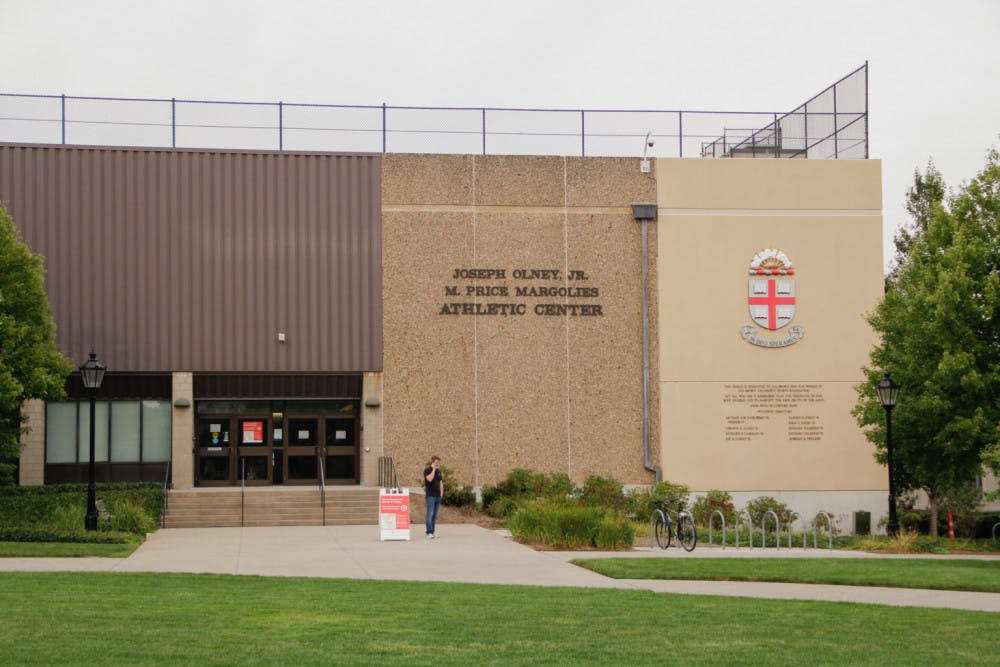The Ivy League will now allow student-athletes to profit off their name, image and likeness, or NIL, the League announced in a July 1 statement. The move comes in the wake of the NCAA’s June 30 adoption of an interim policy allowing student-athletes to profit off their NIL.
Vice President of Athletics and Recreation Dr. M. Grace Calhoun ’92 said she is elated to have a policy that she thinks “really champions the holistic development of student-athletes.”
The NCAA’s change came shortly after the June 21 Supreme Court ruling in the case of National Collegiate Athletic Association v. Alston. In a unanimous decision, the Court upheld a District Court decision that “found unlawful and thus enjoined certain NCAA rules limiting the education-related benefits schools may make available to student-athletes.”
Alston itself did not directly address the issue of name, image and likeness, but nonetheless proved vital in influencing NCAA decision-making, according to Calhoun. “The Supreme Court ruling was (about) what student-athletes can be given (in terms of) educational expenses, so it had nothing to do with NIL, but it gave a lot of instruction on how universities can act together and (how) the NCAA should be dictating policy,” she said. The ruling made it “very clear that (the NCAA) shouldn't be overly restrictive where it's not necessary.”
As a result, the NCAA decided to adopt a decentralized model where individual schools have the final say on their respective NIL policies, according to Calhoun. They decided to let institutions choose their own policies “and to make sure that (student-athletes) are educated on what's acceptable on (their) campus,” Calhoun said. “It's regulated locally instead of nationally.”
To account for potential concerns about the integrity of college athletics, the NCAA is reemphasizing existing rules rather than creating new ones. The NCAA “reminded the membership that (they) already have legislation that protects against extra benefits and pay for play and also protects against recruiting inducements,” Calhoun said. “Those bylaws are still in place.”
For Brown Athletics, the verdict confirmed some expectations but exceeded others. “We've had clarity on (the) timeline for some time but not around the outcome,” Calhoun said.
Still, Deputy Director of Athletics Colin Sullivan mostly expected the Supreme Court ruling. “I don't know if it was a surprise,” he said. “I think what was a surprise (was) that it was a 9-0 decision.”
Student-athletes such as men's basketball player Tamenang Choh ’21 GS also expected a similar outcome, which he attributed in part to student-athlete activism. “I wasn't really surprised. One of my good friends, Geo Baker (of Rutgers University men's basketball), started the #notNCAAproperty trend during March Madness, and I was able to follow (the movement),” Choh said. Though he did not necessarily see the decision coming, he said he was not surprised and that, following such a ruling, a change to NIL policy “had to happen eventually.”
“After the Supreme Court rules it, what’s the NCAA gonna say?” he joked.
With these expectations in mind, preparations were being made even before the ruling was handed down, according to Calhoun. “A ton of work went into all of these topical areas over the last 18 months and then it was (a) waiting pattern until we got the answers we needed (to) move forward,” she said. “Everyone has known for the last year and a half that this was an inevitability, so it's really just now following up on things that we have been planning for.”
The Ivy League’s NIL policy is not dramatically different from the broader NCAA policy, according to Associate Director of Athletics for Compliance Bridgette Cahill ’06. “The Ivy League's NIL rule change is aligned with the NCAA's Temporary Legislation,” Cahill wrote in an email to The Herald. ‘The Ivy League policy does require student-athletes to disclose all employment and commercial NIL activity to the athletics department, but the application and use of NIL legislation is not more restrictive than the NCAA's temporary legislation.”
A crucial next step for the University’s athletics department is finding a balance between aiding student-athletes and not violating any rules, such as explicitly connecting them to business opportunities. “We should be educating the student-athletes; we should be pointing them towards resources and making sure they understand (the) upsides but also downsides,” Calhoun said. “We want to educate them and provide them with resources, but we don't want to cross the line. We can't be matching up student-athletes with potential sponsors or helping them to sign contracts or engage in a business activity.”
Cahill laid out in more detail how exactly the University plans to help student-athletes. Resources for student athletes will take the form of an NIL resource page as well as forthcoming educational sessions over the summer hosted by the compliance office, she wrote, which will continue to make itself available to students one-on-one.
The athletics department is working to prepare for any possible complications. Calhoun specifically cited the possible effect a student-athlete’s added income could have on financial aid as a potential issue, one which the department hopes to educate student-athletes about.
Cahill also cited the role of boosters, anyone whom the NCAA considers “representatives of the institution's athletic interests,” as a possible compliance issue. “While boosters may hire student-athletes, they must be paid the going rate for work being done. While NCAA employment legislation has always permitted student-athletes to be paid for work, there is some concern at the compliance level for potential recruiting inducements,” she wrote. “Educating our student-athletes, coaches, staff and Friends of Brown Athletics will be important during this unique and exciting time.”
Choh wishes that he had been able to profit off his name, image and likeness earlier in his career but ultimately is happy that the rule has changed. “There (have) always been opportunities for athletes to collaborate with companies and market (products)... but the NCAA didn’t allow us to do that legally, so I missed out on those opportunities,” he said. “But I'm still extremely happy that it's happening and (it) should have happened decades ago.”
For Choh, the rule change is partly just a matter of fairness. “There was definitely a difference between being a regular Ivy League student and an Ivy League athlete in terms of simple ways that (other students) could make money that we could not, so this equals out that playing field,” Choh said.
It is not clear exactly how Brown student-athletes will take advantage of their new NIL opportunities yet, but members of the athletics department are confident that student-athletes will find creative and novel ways to capitalize on their talents. “I don't see us having athletes profiting on their jersey sales or autographs or things like that, but we might have athletes that are involved in some unique startup or are musicians or authors,” Sullivan said.
“You just have really smart, resourceful students who I think are going to be really creative about how they find value,” Calhoun added. “I have found in my years working with Ivy student-athletes that there are a lot of smart, out-of-the-box thinkers, so I think we're going to get some students who figure out some ways to monetize their NIL, but it just might look a little different than it looks on some other campuses.”
As the policy deals with uncharted waters, Calhoun acknowledges that it will likely need to be altered in some way. “I think there's a lot we’re going to learn in the initial months and years of doing this,” she said. We are going to “look at what we think is going well and what needs modifications so this will be something that continues to evolve.”
While the long-term future of NIL policy is still unclear, Calhoun is excited for the opportunities it will grant student-athletes. “It's a big step in the right direction (towards) allowing our student-athletes to really have the freedom to do what they think is in their best interests,” she said. “Now it's just (about) learning whatever we can about how best to support them.”

Peter Swope was the senior editor of digital engagement for The Brown Daily Herald's 133rd Editorial Board. He previously served as a Sports section editor and has also written stories for University News. Peter is a senior from New Jersey studying history.





